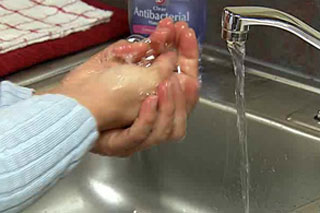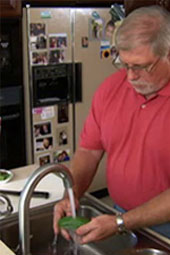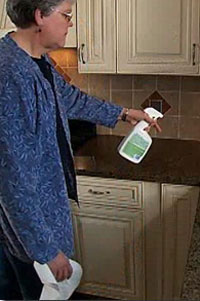Safety Tips

When feeding a person, never use straws if the person has dysphagia.
Food Safety
As a family caregiver it is important for you to follow food safety guidelines. Food safety is a public health issue. Germs enter food from improper cleansing, preparation or poor hand washing practices. Eating foods containing these germs can make a person very ill. Persons most at risk for developing food borne illnesses are the elderly, very young, and those with lowered resistance to infection.
Follow these Food Safety Tips

- Wash your hands with warm soapy water before touching food
- Wash all fresh fruits and vegetables thoroughly
- Do not eat raw meats or unpasteurized milk
- Do not buy or eat food that has passed the expiration date on the package
- Keep foods properly refrigerated at 40º Fahrenheit. Frozen foods should be kept at 0º Fahrenheit
- Wash dishes and cutting boards with hot soapy water. Use a dishwasher if available.
- Do not save leftovers for more than 2 days in the refrigerator
- Wash dishrags, towels and sponges regularly or run them thru a dishwasher cycle. The cleanest option is paper towels
- Clean the inside of your refrigerator and microwave every month

You can play a key role in preventing food borne illnesses such as Salmonella, E Coli and staphylococcus in the home. Most people do not think about food borne illness until the person they care for or they themselves become ill. While the food supply in the United States is one of the safest in the world, the CDC estimates that each year 76 million cases of food borne illness occur.